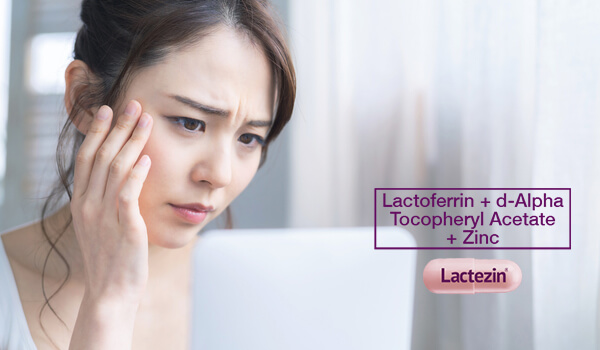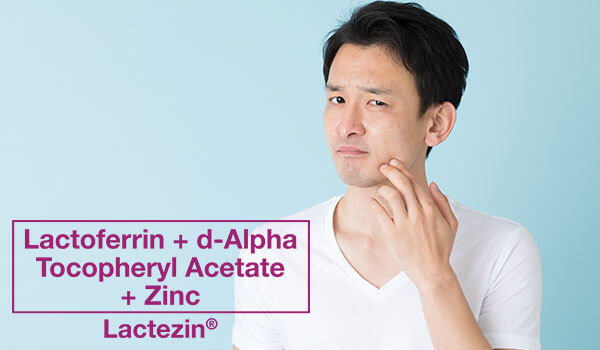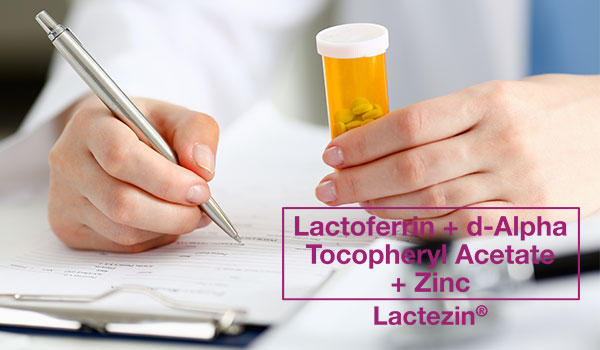Can Stress Cause Pimples? Answering the Top 5 Questions on Stress Acne

As if stress itself isn’t bad enough, have you ever experienced getting breakouts while going through a stressful period in your life? Talk about having it tough. But is it just a coincidence, or is your acne connected to stress levels?
Here, we answer the top questions on stress and pimples, plus explore the best ways to manage breakouts caused by stress:
Q1. Does stress really cause acne?
The relationship between stress and acne has often been misunderstood. Stress does not directly cause acne. However, studies have shown that if you already have acne-prone skin, stress can make it worse.
How does stress manage to have that effect? Hormones. Our bodies respond to stress by producing the stress hormone cortisol, which in turn increases the levels of androgen, which then ramps up sebum production in skin. This, along with dirt and bacteria, contributes to clogged pores which then causes acne.
Q2. How does stress acne differ from other types of acne? What are stress acne symptoms?
As opposed to other types of breakouts, stress acne will typically appear in the oiliest areas of your face. They usually appear on the T-zone and when this is the case, the acne is accompanied by uneven or grainy skin texture, shininess, blackheads, whiteheads, and dilated pores. Stress acne is also often accompanied by other telltale signs such as redness and itchiness. Regular acne, on the other hand, will not appear with these accompanying symptoms.
Q3: Does the type of stress also affect the breakout you get?
There are three types of stress: acute, episodic acute, and chronic stress. Acute being the most common where you experience immediate perceived threats, and episodic acute stress is where you feel acute stress frequently. Chronic stress is ongoing stress resulting from long-term emotional pressure. For example, a stressful job, unhappy family situation, or in our current situation, a global pandemic.
More often, stress acne has been associated with short-term or acute stress, but chronic stress such as the one we’re collectively experiencing can also affect the duration of acne breakouts and how they heal. There is also evidence that chronic stress can affect our immune system in ways that slow down healing. So if you’re dealing chronic stress, your breakouts may stick around longer, and may likely result in scarring.
Q4: I don’t get to sleep properly because of stress. Will that affect my acne?
Another thing stress affects is our sleep patterns, hence the late night Netflix binges or interrupted sleep where you wake up every so often. Not only does this affect our energy levels during the day but sleep deprivation is actually a major acne trigger.
While the skin wards off environmental damages during the day, it switches into recovery mode at night. It works hard to repair as the regenerating process can be up to three times faster versus during the day.
The skin starts going to its evening phase at around 9 to 11 pm. Melatonin, which is the sleep hormone, increases during this period, enhancing the feeling of tiredness while also boosting the skin’s ability to counteract the damage done during the day from aggressors like UV and pollution. Another hormone at work during this time is HGH or the human growth hormone. It is responsible for accelerating the skin’s repair and cell regeneration. Our body’s cell production can double between the hours of 11 pm and 4 am.
So when you’re often sleep-deprived, this results in dull, dry-looking skin. Plus the disruption in hormone levels may unsettle the chemical balance in your skin that wards off pimples.
Q5: Will my stress eating affect my skin too?
No one can blame you for finding comfort in food when you’re stressed. While there is no harm in the occasional treat, too much may worsen your acne. The high-carb / high-sugar foods that we often crave have a high glycemic index, which has been linked to acne. These foods increase levels of a hormone called insulin-like growth factor (IGF-1), which is suggested by studies to drive sebum production.
Read more on diet and acne: Can You Treat Pimples with an Anti-Acne Diet?
How to treat and prevent stress acne
If only we could get rid of stressors entirely, right? But even if these circumstances are out of our hands, we can take control of how we manage acne. Here are some ways you can start taking charge:
Follow a routine and stay organized.
When you’re at work, organizing your spaces — both real and virtual — and cutting out your constant email or message-checking habit can also help knock down stress. It also helps to have fixed items on your routine to reduce the anxiety of not knowing what to expect from your day. Choose an activity you can do and stick to your schedule, such as waking up at the same time, following your skincare routine, and getting dressed for work every morning.
Engage in stress-reducing activities
Mindfulness meditation and exercise are two research-backed stress-killers, so you may want to try incorporating these into your daily routine. Try to develop an awareness of what stresses you out and what helps, whether it’s watching funny videos online or having a quick chat with a trusted friend.
Stick to your acne skincare routine
When you’re stressed or exhausted, it’s so easy to neglect your skincare routine. In this case, it helps to streamline it to be quick and efficient, and also to think of it as a form of self-care.
If you’re dealing with stress acne, start of by washing with a salicylic acid cleanser that gently exfoliates and clears pores. If you’ll be using actives like Vitamin C, AHA, or retinol, don’t use more than two in one day (Note: don’t mix, blend or layer actives. For example, if using Vitamin C in the morning, use another active like a light Retinol or AHA in the evening.) Then, moisturize with a lightweight moisturizer and don’t skip sunscreen, even when you’re indoors.
Out of habit or stress, many of us tend to touch or squeeze acne, which can worsen it and lead to scarring and discoloration. So do your best not to touch or pick at your skin.
Treating and preventing acne with Lactezin
With so many skin stressors these days, acne is prone to happen. But you can combat it, given the right and trusted skincare product. Start with Lactoferrin + d-Alpha Tocopheryl Acetate + Zinc (Lactezin). It has Lactoferrin + d-Alpha Tocopheryl Acetate + Zinc working together to treat pimples and keep them from coming back.
Lactoferrin has antibacterial and anti-inflammatory properties that protect the skin from infection and irritation. d-Alpha Tocopheryl Acetate is a very potent antioxidant that helps eliminate skin-damaging free radicals. Zinc helps regulate skin’s natural moisture to maintain a healthy appearance. Taking Lactezin 2x/day helps fight acne, improves skin immunity, and maintains healthy skin from within.
Lactoferrin + d-Alpha Tocopheryl Acetate + Zinc (Lactezin) is available in all leading drugstores nationwide. You may also purchase online through Shopee.
SOURCES:
https://jamanetwork.com/journals/jamadermatology/fullarticle/479409
https://time.com/5014072/stress-pimples-acne/


